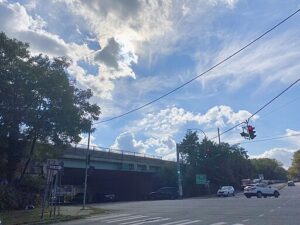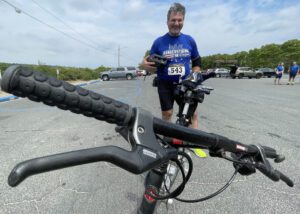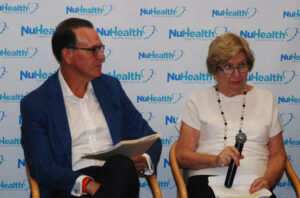By Alan Singer
I recently took part in an hour-long WABC-TV special, “Back to School: Learning During a Pandemic,” hosted by Lauren Glassberg. Participants included Roger León, superintendent of Newark Public Schools in New Jersey; Dr. Jennifer Lighter, a specialist in pediatric infectious diseases at NYU Langone Health; and Dr. Jill Emanuele, senior director of the Mood Disorders Center at the Child Mind Institute in Manhattan.
Glassberg spread questions among the panelists. Here are my responses, which have been edited down for space.
What do you think needs to be done in terms of catching kids up in learning?
The Brookings Institute posted a preliminary study in December 2020 that projected students would lose 30 percent of the expected learning gains in reading and 50 percent of expected learning in math because of Covid-19 disruptions in education, and in June, the federal Office for Civil Rights reported that the pandemic widened pre-existing racial, ethnic and economic disparities in education. There will be pressure on school administrators, teachers and students to catch up as fast as they can. If performance is measured by standardized exams, that could lead to intense test prep rather than a focus on the joy of learning, possibly making school a dreary place for kids who are returning to school full of joy.
Have you heard any stories that suggest kids can’t learn in different situations?
I think the bigger problems are the adult political battles over vaccinations and masks, which will increase adolescent anxiety and can contribute to bullying in schools. We’ve seen Covid-19 spikes in Louisiana and Texas, where people have been most hostile toward vaccinations and masks. New York City is mandating that all school employees be vaccinated by the end of September, but the teachers’ union acknowledged there are thousands of unvaccinated city Department of Education workers, including teachers. We want to be hopeful, but we also need to be prepared. Kids respond to what is going on and the anxieties of parents and teachers.
Should children and parents know which teachers are vaccinated?
Teachers have rights. People with disabilities have rights. People with religious beliefs have rights. This question may have to be resolved in court.
There are studies that report online learning is not as effective as classroom instruction. Can you discuss this?
I have two high school-age grandchildren who are now seniors. I worked with them on FaceTime. They received instructional packets from school, and sometimes they could do them and sometimes they couldn’t, but I was there to help. The reality is, though, that most students don’t have someone with whom they can work. Parents may not be fluent in English. Parents themselves may not be well-educated.
My grandson needed help with chemistry. I don’t know chemistry, but as an experienced teacher, I asked him to explain it to me, and through that process, he figured it out. Many kids don’t have that, and they get lost and give up. That is the problem with online learning.
As a Hofstra University teacher educator, I virtually visited about a dozen metropolitan area middle and high schools during the coronavirus pandemic. Some schools had high attendance, while at others, less than 50 percent of students showed.
With online learning, many students did not attend school, and even if they signed on, many were not required to turn on their cameras and were not there.
Did some older students take part-time jobs to earn income during school hours?
At one vocational school, many parents were out of work. Because the primarily young men at the school had job skills, they were working and signing into class on their phones, but the teacher was aware they were not really there. It was difficult because the teachers did not want to come down hard on them because their families needed the income, but they were not learning.
What are your final thoughts on where you think this school year is headed?
First, for younger children, we must make school and learning fun. That must be the priority. For older children, the challenge will be to reaffirm the habit of hard work, even when the task is difficult or boring. That is preparation for future life.
I would like to propose a civics project for every school and student. We need to enlist our children as Covid-19 educators. This was done during World War II when children were mobilized for recycling campaigns to educate their parents, and it was done by Mayor Ed Koch in New York City during the 1980s when there was a water shortage. Our children should become active in their families and communities, educating parents, family members and neighbors as to why they should be vaccinated. That would bring excitement to the schools, engage kids on many different levels and help address the coronavirus pandemic.
Dr. Alan Singer is a professor of teaching, learning and technology and the director of social studies education programs at Hofstra University. He is a former New York City high school social studies teacher and editor of Social Science Docket, a joint publication of the New York and New Jersey Councils for the Social Studies. Follow him on twitter at https://twitter.com/AlanJSinger1.









